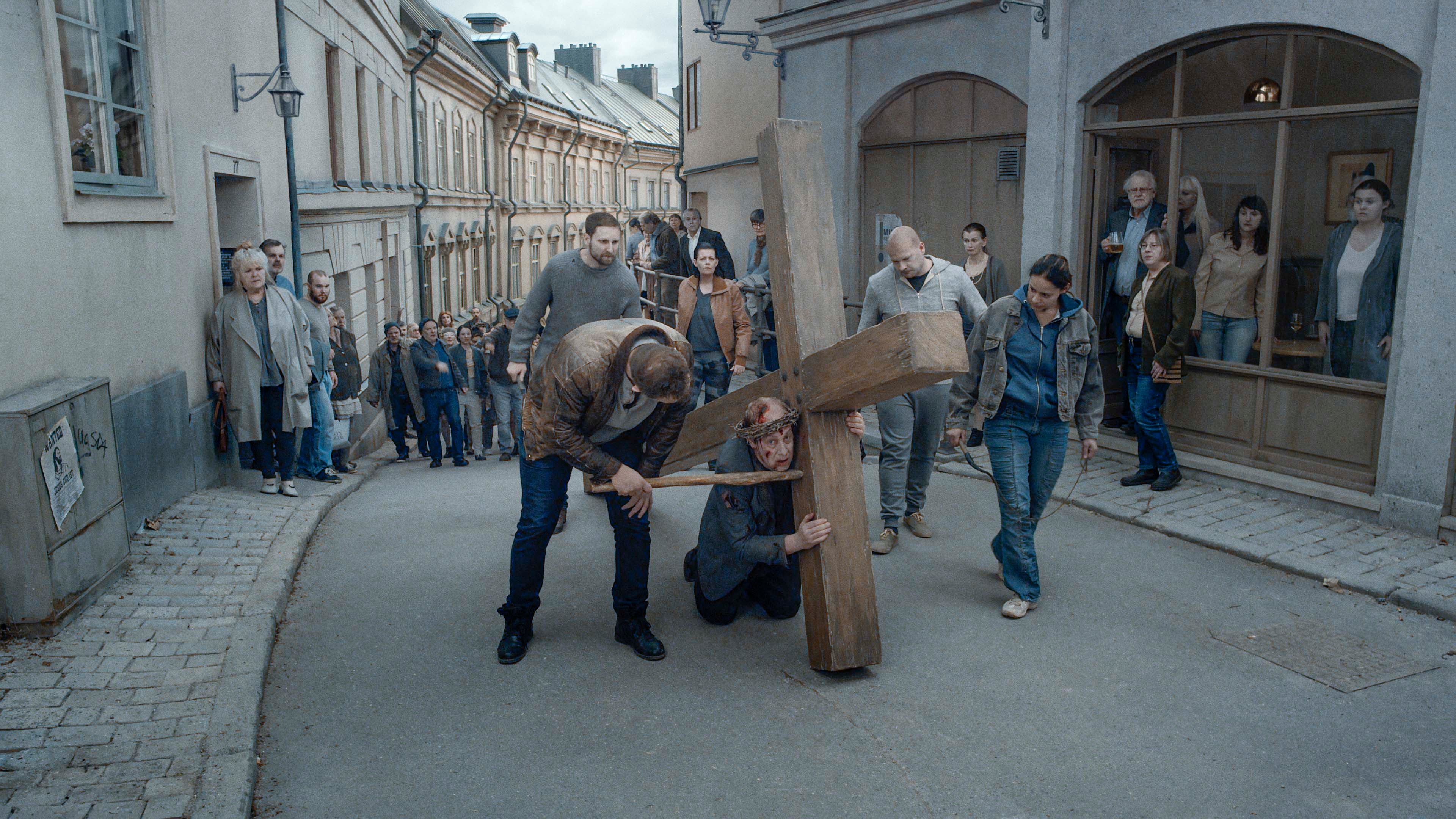About Endlessness review: The coda to Roy Andersson’s spectacular career
The director possesses a painter’s eye, taking the mundane truths of existence and splashes them across a great, austere canvas

Your support helps us to tell the story
From reproductive rights to climate change to Big Tech, The Independent is on the ground when the story is developing. Whether it's investigating the financials of Elon Musk's pro-Trump PAC or producing our latest documentary, 'The A Word', which shines a light on the American women fighting for reproductive rights, we know how important it is to parse out the facts from the messaging.
At such a critical moment in US history, we need reporters on the ground. Your donation allows us to keep sending journalists to speak to both sides of the story.
The Independent is trusted by Americans across the entire political spectrum. And unlike many other quality news outlets, we choose not to lock Americans out of our reporting and analysis with paywalls. We believe quality journalism should be available to everyone, paid for by those who can afford it.
Your support makes all the difference.Dir: Roy Andersson. Starring: Tatiana Delaunay, Amanda Davies, Karin Engman, Bengt Bergius, Marie Burman, Anja Broms. 12A, 76 mins.
Roy Andersson is a filmmaker with a painter’s eye. He takes the mundane truths of existence and splashes them across a great, austere canvas. In his self-titled “living trilogy” – Songs from the Second Floor (2000), You, the Living (2007) and A Pigeon Sat on a Branch Reflecting on Existence (2014) – he treats people like little Play-Doh figurines in a fussy child’s school diorama. They mostly stand around, stiff, their faces sagging a little. The colours around them are muted, their voices have the steady drone of an army on the march. Every choice is precise and deliberate – an invocation of both the hardy, unsentimental peasant scenes of Pieter Bruegel the Elder, the Flemish master, and the hypnotic ugliness of the Weimar Republic’s New Objectivity movement. But, whatever your reference points, the film still sings.
Andersson’s latest, About Endlessness, which he hinted may be his final film, feels like the coda to a spectacular career. The film consists of a series of vignettes, connected only on a microcosmic level. The events within them never unfold with much urgency. A father ties his daughter’s shoes. A couple lay flowers on their son’s grave. A woman waits for someone at a train station. There’s an absurdity to his earlier work, but here, for the most part, it’s been withdrawn in favour of the quiet thrum of self-reflection. It’s as honest as it is deliberately obtuse; small actions hint at an ocean of feeling. See how the father kneels in the mud, ruining his own clothes, or how the couple matter-of-factly assure their dead son that they’ll take good care of his plot, so as not to embarrass him in front of his gravemates. A man eventually approaches the woman at the station. She doesn’t seem all that happy to see him
There is violence – the aftermath of an honour killing and an incident of domestic abuse at an upscale market. There are scenes, too, drawn from history. A bedraggled Adolf Hitler shuffles through the bunker where he spent his final days, as his last loyal officers give him a weary “Sieg Heil”. But no matter the scene, the staging is always the same – a single, static shot, dour and shadowless. The majority of the film was shot in the Swedish director’s personal studio, where intricate sets allow him to maintain complete control over what his audience sees and experiences. A woman (Jessica Louthander), her voice like a whisper through time, narrates each scenario in the same way, with lines like “I saw a boy who had not yet found love” or “I saw a man whose mind was elsewhere”.
One of the few characters Andersson chooses to revisit is a priest who’s lost his faith – at night, he now dreams that he’s Christ dragging his own cross up to Calvary, asking over and over again, “What have I done wrong?” About Endlessness, in a way, is its own interpretation of the Stations of the Cross. It’s the great procession of humanity – mercy and defeat and callousness all included.
A student, describing the laws of thermodynamics, tells us that energy never ceases to exist, it merely transforms into something new. Emotions are passed between scenes and between characters, on and on. That may sound like a dreary, rudderless view of the world, but Andersson does offer us one small relief – the one emotion here that soars is love. It’s brought to us by a pair of messengers, two lovers entwined like in the paintings of Marc Chagall, floating high above a bombed-out city. Maybe it’s a naive image, but it’s comforting all the same.
Join our commenting forum
Join thought-provoking conversations, follow other Independent readers and see their replies
Comments